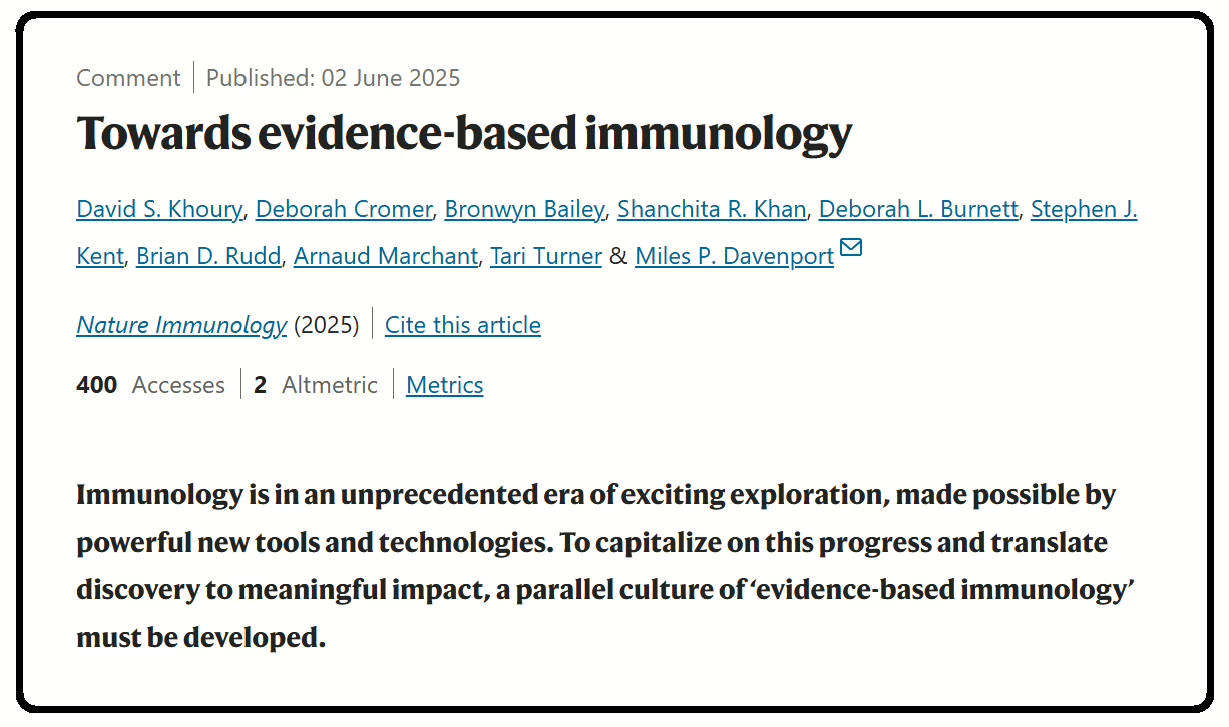 Immunology is in an unprecedented era of exploration. How can researchers and decision-makers turn this into meaningful impact?
Immunology is in an unprecedented era of exploration. How can researchers and decision-makers turn this into meaningful impact?A new paper co-authored by a team from the Kirby Institute and ALEC considers the issues arising from powerful new tools that are driving unprecedented change in immunology. The article, published in Nature Immunology, draws parallels with clinical research and evidence synthesis, exploring the prospect of evidence-based immunology.
“The gold standard evidence-base for decision makers would include data from several rigorous, independent studies, combined in a systematic review and meta-analysis of all available evidence.”
A focus on exploratory research in immunology, without subsequent studies to test or validate hypotheses, can result in a “scarcity of instances in which the same biomarker has been found in more than one study”, limiting the impact and utility of immunology research. Biomarkers of Long COVID are a recent example of this issue.
Drawing on the approaches of clinical research evidence synthesis, the authors explore how immunologists, researchers and reviewers can create a “balanced research ecosystem” of exploration, discovery, validation, reproducibility and actionable evidence.
ALEC and collaborators at the Kirby Institute, are taking practical action to support this transition, developing a set of evidence and consensus based practical tools for assessing immunological research in vaccine development. The project, known as FEEVA (Framework for Evidence Evaluation in Vaccine Assessment) is a collaboration between immunologists, vaccine developers, regulators and evidence synthesisers to support systematic use of preclinical immunological evidence in decision-making about vaccines.